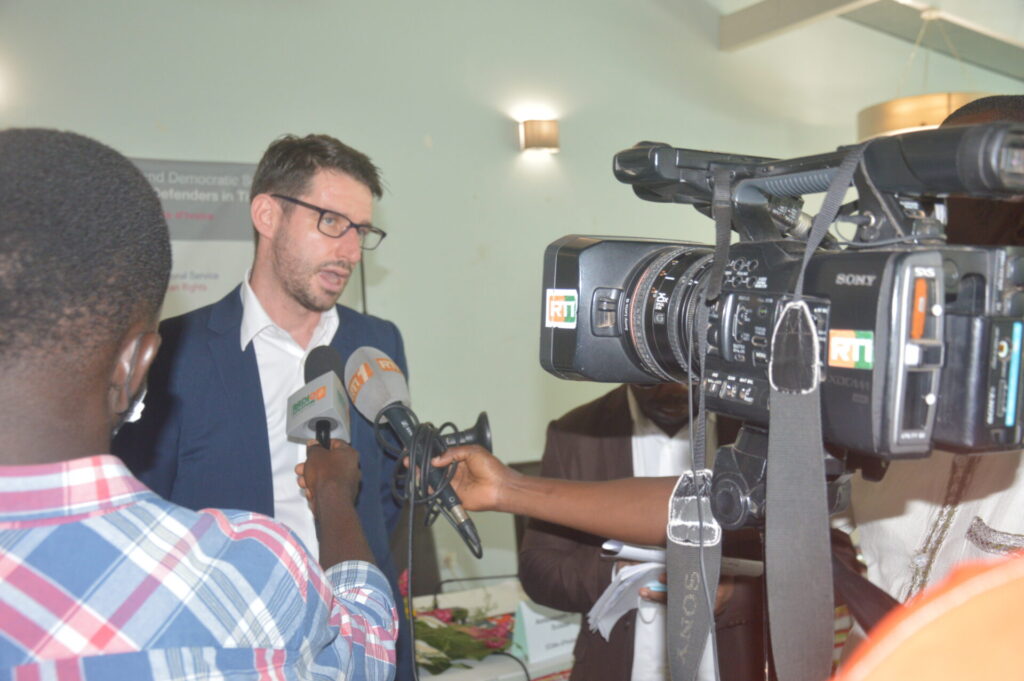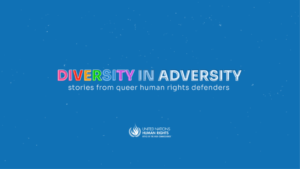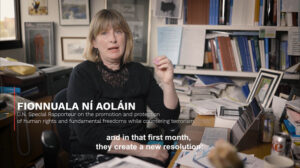Late last month, one of my team, Ed O’Donovan, attended a regional meeting of Human Rights Defenders from North and West Africa in Cote d’Ivoire, organised by ISHR and the Ivorian Coalition of Human Rights Defenders. The theme of the workshop was protecting civic space and HRDs in times of crisis and was also attended by the Special Rapporteur on Freedom of Assembly and Association, who is working on a set of recommendations on the protection of human rights in the context of peaceful protests during crisis situations to present to the UN Human Rights Council next year.

The gathering was attended by HRDs from around a dozen countries and it was an excellent opportunity for my office both to hear the challenges HRDs in West and North Africa have been facing during the pandemic and to introduce the working methods of my mandate and encourage defenders in the region to make more use of it. During his presentation, Ed highlighted that of all communications issued by the HRD mandate since 2010, only 14% involved cases in Africa, the lowest of the five world regions. He took participants through the process of submitting complaints to the mandate when violations against HRDs occur and stressed that we can only act on information that we receive directly, alongside the consent of the person whose rights were violated.
A common call to come out of the meetings was that governments should recognise Human Rights Defenders as stakeholders and engage them when drawing up their responses to crises. Justification for this was evident in hearing how defenders mobilized to assist their communities when Covid-19 struck. In many instances they were better placed, more trusted or simply more willing to react quickly, transparently and effectively than their governments.
In some countries, a limited number of ‘special waivers’ were issued to HRDs to permit them to continue their work despite the lockdowns. This strikes me as an example of good practice and one that should be considered for states of emergency more generally, given that where HRDs are permitted to work without restriction, it is likely that fewer violations will occur. This approach would also echo the Secretary General’s Call to Action which highlights the central role human rights should play in crisis response, gender equality, public participation, climate justice and sustainable development.
There was much discussion of HRD protection laws during the meetings and I was delighted to see that there has finally been some progress with the law in Cote d’Ivoire, following a stasis since the signing of the implementation decree in 2017. Ed, along with the Special Rapporteur on Freedom of Assembly and Association and civil society colleagues met with the Minister for Justice in Abidjan to discuss the law.
The previous day a decree had been signed to entrust the Ministers of Justice, Human Rights, Defence and the Interior to begin work on establishing the mechanism for HRD protection, as outlined in the 2014 Law. I asked Ed to convey the willingness of my mandate to provide any necessary technical assistance in the development of the mechanism and implementation of the law. As I outlined in my recorded remarks to the consultation, with this mechanism, Cote d’Ivoire has an opportunity to establish best practice for state-led HRD protection and to build on its reputation as a standard setter in the region when it comes to Human Rights Defenders. I will continue to follow the process closely.



